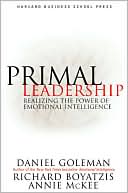Category Books
- Fiction Books & Literature
- Graphic Novels
- Horror
- Mystery & Crime
- Poetry
- Romance Books
- Science Fiction & Fantasy
- Thrillers
- Westerns
- Ages 0-2
- Ages 3-5
- Ages 6-8
- Ages 9-12
- Teens
- Children's Books
- African Americans
- Antiques & Collectibles
- Art, Architecture & Photography
- Bibles & Bible Studies
- Biography
- Business Books
- Christianity
- Computer Books & Technology Books
- Cookbooks, Food & Wine
- Crafts & Hobbies Books
- Education & Teaching
- Engineering
- Entertainment
- Foreign Languages
- Game Books
- Gay & Lesbian
- Health Books, Diet & Fitness Books
- History
- Home & Garden
- Humor Books
- Judaism & Judaica
- Law
- Medical Books
- New Age & Spirituality
- Nonfiction
- Parenting & Family
- Pets
- Philosophy
- Political Books & Current Events Books
- Psychology & Psychotherapy
- Reference
- Religion Books
- Science & Nature
- Self Improvement
- Sex & Relationships
- Social Sciences
- Sports & Adventure
- Study Guides & Test Prep
- Travel
- True Crime
- Weddings
- Women's Studies
Primal Leadership: Realizing the Power of Emotional Intelligence »

Authors: Daniel Goleman, Richard E. Boyatzis, Annie McKee
ISBN-13: 9781578514861, ISBN-10: 157851486X
Format: Hardcover
Publisher: Harvard Business Press
Date Published: February 2002
Edition: (Non-applicable)
Author Biography: Daniel Goleman
Daniel Goleman is the founder of Emotional Intelligence Services and works on leadership transformation with the Hay Group of Boston.
Richard Boyatzis is Professor and Chair of Organizational Behavior at the Weatherhead School of Management at Case Western Reserve University. Annie McKee is Director of Management Development Services, North America, at the Hay Group.
Book Synopsis
Primal Leadership: Realizing the Power of Emotional Intelligence
By Daniel Goleman, Richard Boyatzis, and Annie McKee
For every suicide bomber on September 11th or executive at Enron, there are hundreds of leaders like Rudi Guiliani, Oprah Winfrey, Niall Fitzgerald, Keki Dadiseth, and Antony Burgmans of Unilever, Monica Sharma of the United Nations, James Staley of Roadway, and John Lauer of Oglebay Norton. They help us elevate the human spirit and make society, our organizations, our families, and lives better. They do it by using their emotional intelligence to create an atmosphere in which people want to do and be their best.
We wrote this book to help reverse the alarming trend of only seeing the examples of the lack of emotional intelligence and the havoc it imposes in our lives and society that bombard us daily. Based on decades of research and consulting to executives and organizations, we sought to explain the links between outstanding leaders and their emotional intelligence.
There are three major points in this book. First, great leaders move us. They do it by creating a resonance with our emotions and a shared desire to be a part of something effective and meaningful. They are emotionally intelligent, and their emotional intelligence is driven by neural circuits and emerges in clearly observable actions. It is through leadership styles based on emotional intelligent acts that enable them to establish this resonance with others. Second, people can develop these competencies. Based on a series of longitudinal studies, the process by which adults can significantly improve their emotional intelligence is described with many examples. These are exciting results. People have not only been shown to sustain these improvement seven years later, but also continue to grow and develop years after beginning the process. Third, leaders at all levels in organizations can create resonant teams and cultures that breed emotional intelligence and the best in others.
We hope you find the story as exciting as it has been for us in working with others and making these discoveries. Being a part of the creative and energizing process of people becoming leaders is a source of hope. And we all need more of that these days.
USA Today
Now, here is a concept that every new (and old) boss should take to heart: The duty of a leader is to prime positive feelings in workers..... clear, concise writing style is helpful in explaining complex processes in easy-to-understand language....Goleman, Boyatzis and McKee have turned a difficult trick: attacking a tired subject in an invigorating way.
Table of Contents
Acknowledgments
Part I The Power of Emotional Intelligence
1. Primal Leadership
2. Resonant Leadership
3. The Neuroanatomy of Leadership
4. The Leadership Repertoire
5. The Dissonant Styles: Apply with Caution
Part II Making Leaders
6. Becoming a Resonant Leader: The Five Discoveries
7. The Motivation to Change
8. Metamorphosis: Sustaining Leadership Change
Part III Building Emotionally Intelligent Organizations
9. The Emotional Reality of Teams
10. Reality and the Ideal Vision: Giving Life to the Organization's Future
11. Creating Sustainable Change
Appendix A EI versus IQ: A Technical Note
Appendix B Emotional Intelligence: Leadership Competencies
Notes
Index
About the Authors
Subjects
 Management & Leadership
Management & Leadership  Executives
ExecutivesBusiness Books
 Management & Leadership
Management & Leadership  Leadership
LeadershipBusiness Books
 Management & Leadership
Management & Leadership  Management - Professional & Reference
Management - Professional & ReferencePolitical Books & Current Events Books
 All Politics
All Politics  General & Miscellaneous
General & MiscellaneousSelf Improvement
 Personal Growth
Personal Growth  Self - Improvement
Self - ImprovementSelf Improvement
 Personal Growth
Personal Growth  Success, Motivation & Self - Esteem
Success, Motivation & Self - EsteemSelf Improvement
 See All
See All  Self - Improvement
Self - ImprovementNonfiction
 Politics & Current Affairs
Politics & Current Affairs  All Politics
All Politics
